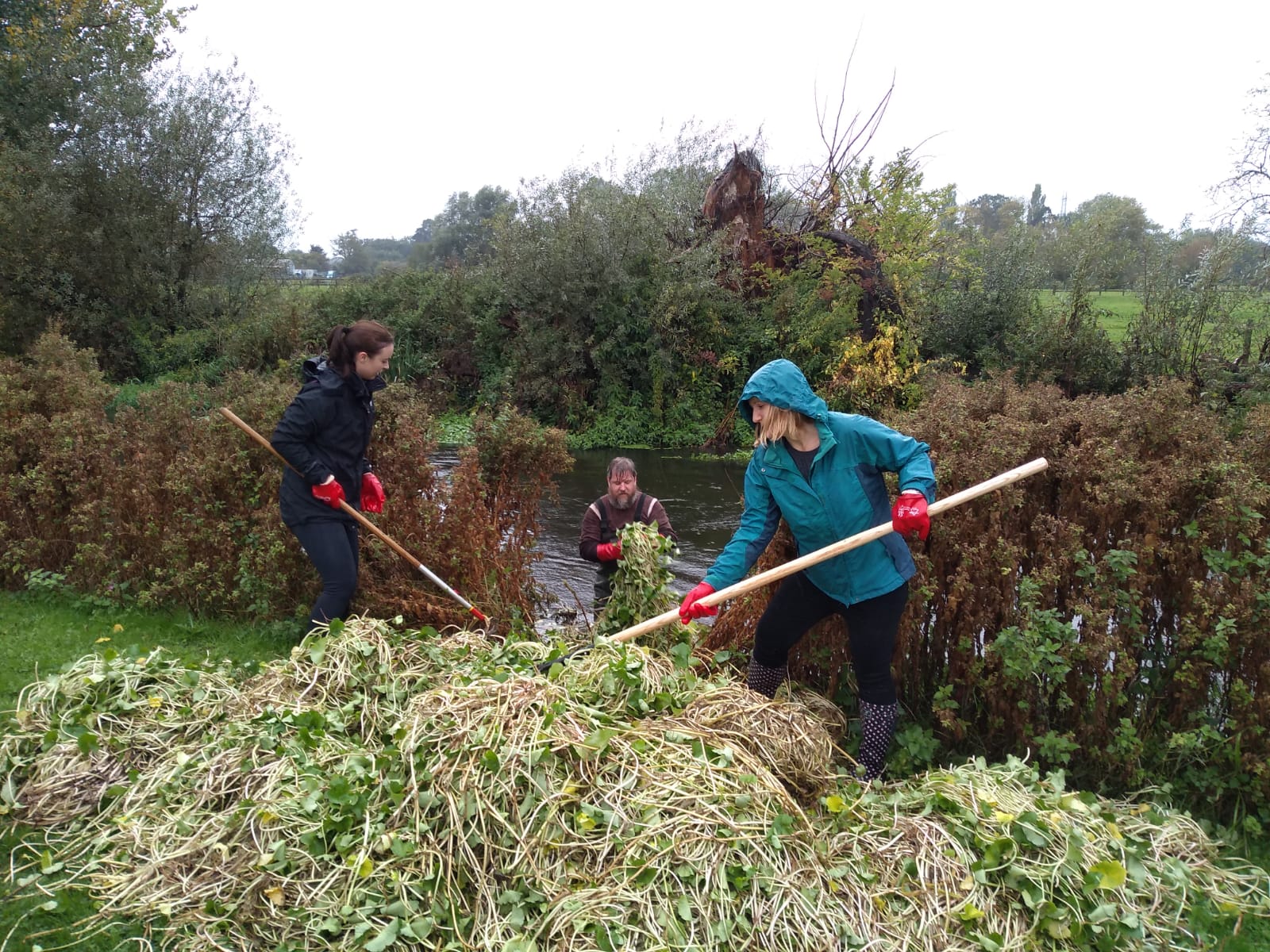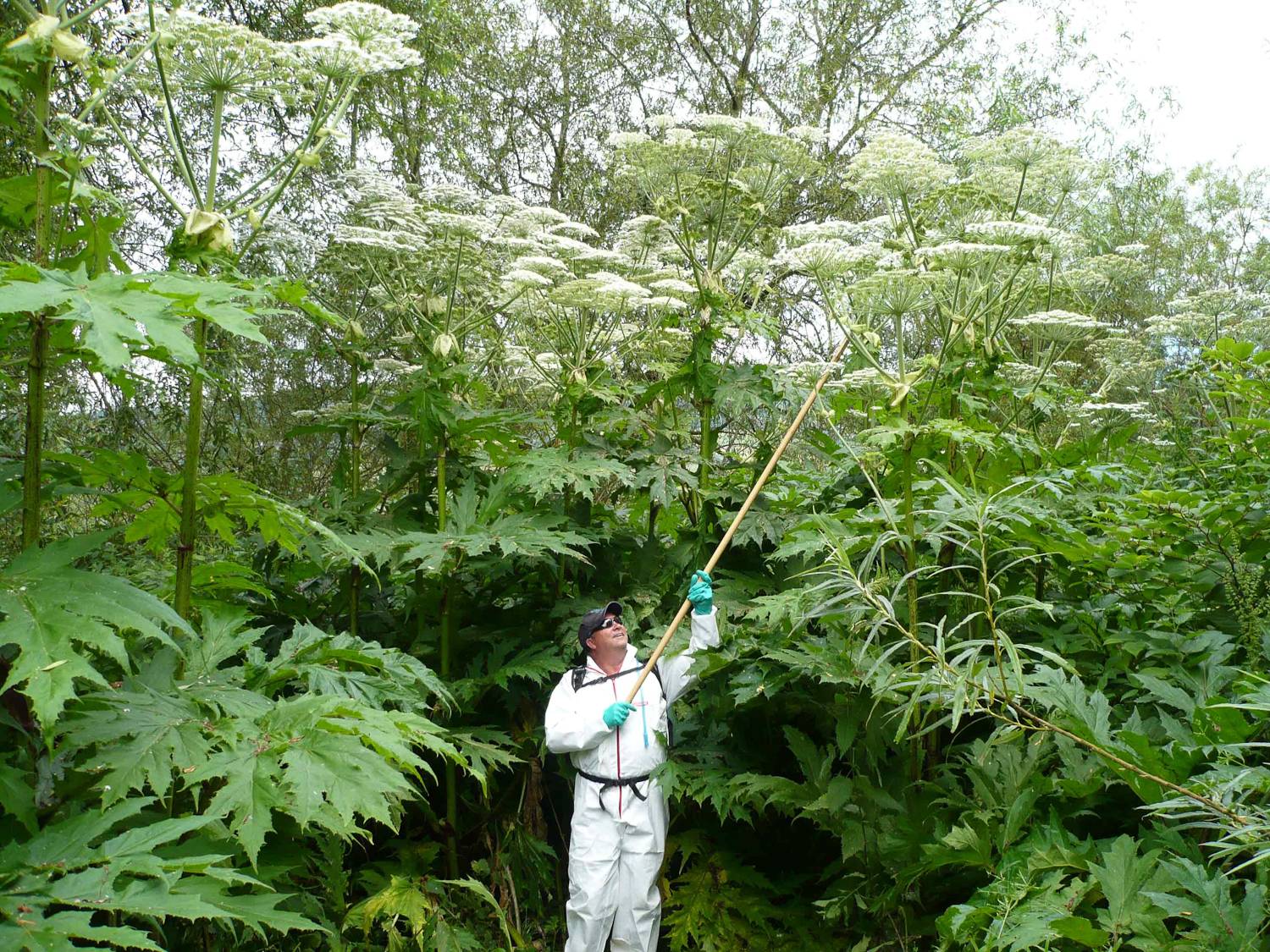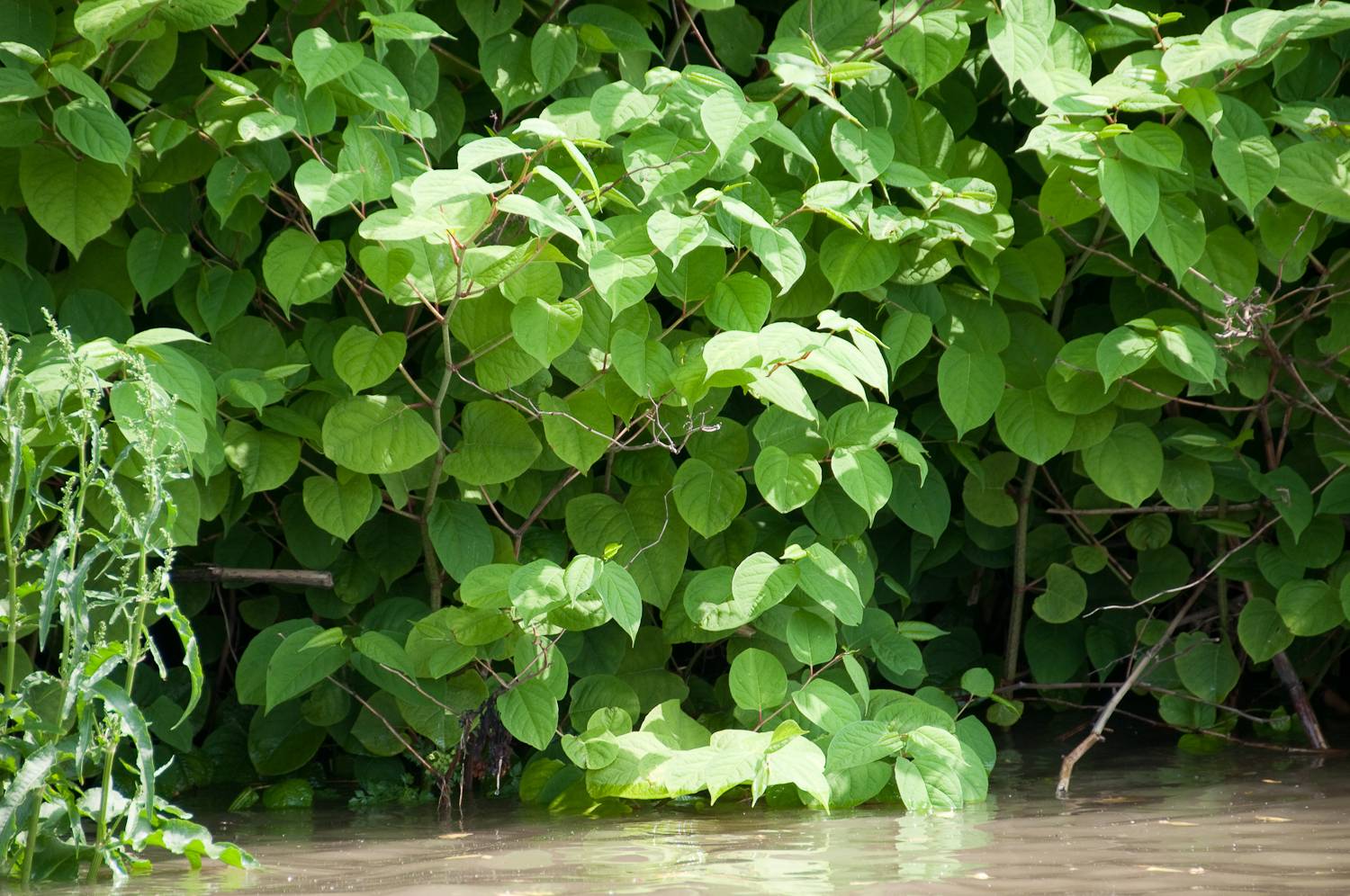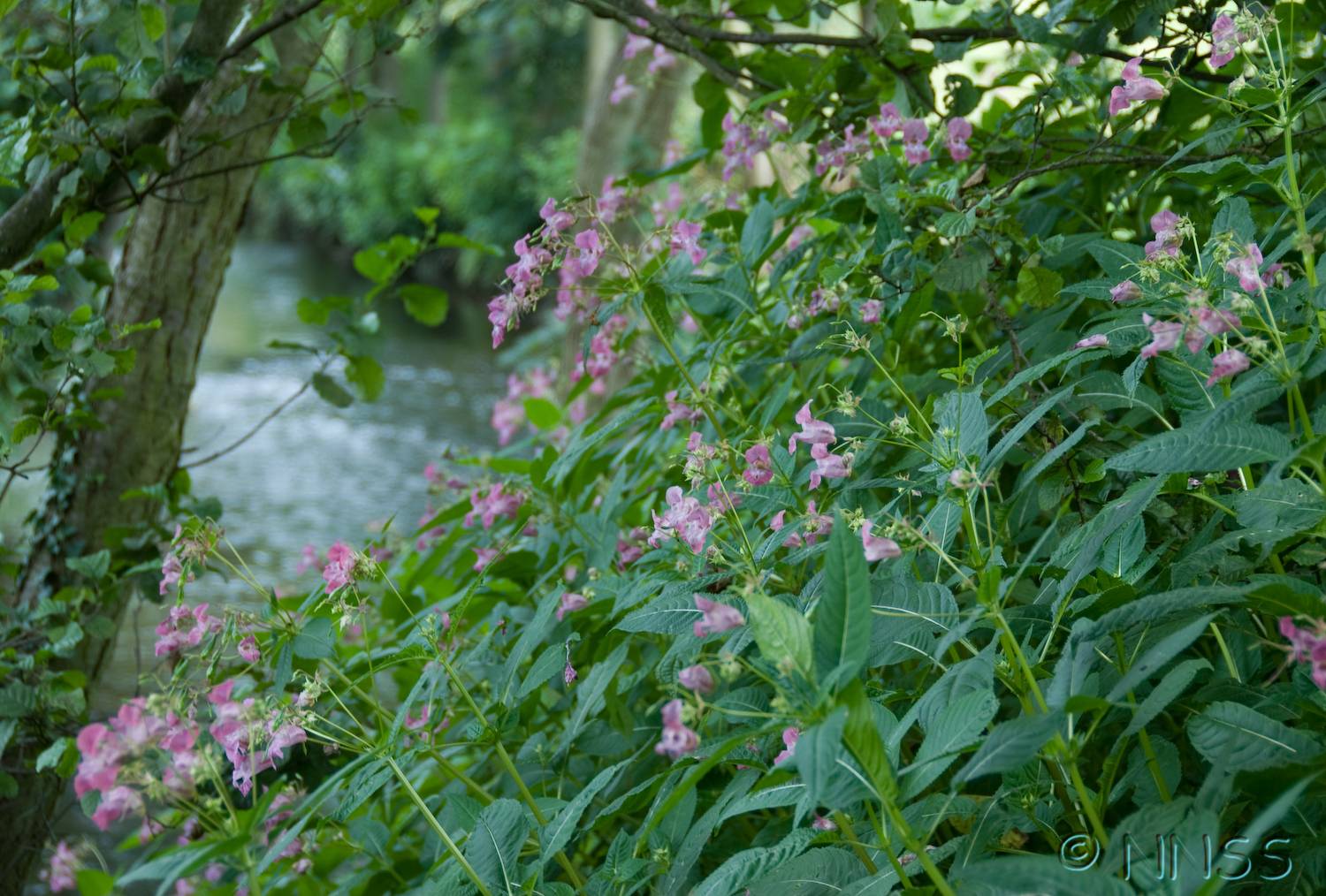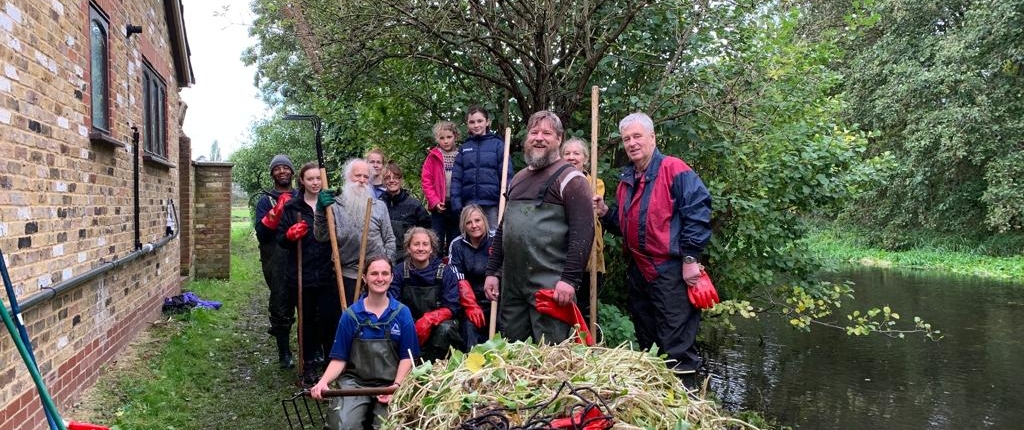The Colne Valley Regional Park covers 43 square miles and is interspersed with a variety of habitats and over 200km of rivers and canals. This beautifully diverse area is under attack by “space invaders” that threaten to disrupt the natural order of its aquatic and riparian ecosystems. These invaders – Floating Pennywort, Himalayan Balsam, Giant Hogweed, and Japanese Knotweed – are non-native invasive species (NNIS) which can significantly impact plant biodiversity, human society and economic interests. In a 2010 study from the Centre for Agriculture and Bioscience International it was estimated that invasive species cost the British economy £1.7Bn per year.
As part of a Landscape Partnership funded project, Groundwork South and the Colne Valley Regional Park are working to fight these unwelcome visitors to protect our native species and provide a flourishing ecosystem.
Floating Pennywort was introduced into the UK in the 1980s from Central and South America. Floating Pennywort is a major threat to Colne Valley rivers, the species can regrow from a single node and has a rapid growth rate, up to 20cm per day, forming dense matts that obstruct boats, prevent angling, and outcompetes native species for sunlight.
Giant Hogweed is a species native to the Caucasus mountains in South West Russia and Georgia. It rapidly colonises wasteland habitats and riverbanks and can grow to staggering heights of 5 meters. It threatens native plant species, local wildlife, and human health due to phytotoxic sap that cause severe skin blistering.
Floating Pennywort
Giant Hogweed
Himalayan Balsam is a species native to the western Himalayans in North India. It rapidly colonises the riverbanks and is now well established across the UK and throughout Colne Valley Regional Park. The species suppresses the growth of native plant species and when it dies back in autumn it leaves riverbanks bare, increasing the rate riverbank erosion during the winter.
Japanese Knotweed is a species native to Japan, China and Taiwan. Japanese Knotweed is a tall, herbaceous perennial with a bamboo like stem which grows in dense thickets along riverbanks. This species impacts our local ecosystems by outcompeting native plants and can potentially damage man-made structures as it can grow through concrete and tarmac.
Japanese Knotweed
Himalayan Balsam
Currently we are working to raise awareness of the impact of these species by holding workshops for the public and interested participants, sharing information leaflets and documents as well as providing bespoke advice to landowners. In addition we work with volunteers to map populations across the Colne Valley Regional Park and host practical days for removal of Floating Pennywort and Himalayan Balsam through our River Rangers project.
We believe that it is important to work toward control and management of these species for the betterment of local wildlife and for all river users. These NNIS largely impact our native wildlife by their ease of spread, vastness of spread, and because they have no natural control agents in the UK. We need your help to tackle this issue.
How can you help? Everyone can help us in the fight against these NNIS while walking along your local river. Volunteer with us during survey months (June – September) to report any sightings of these species or join a volunteer group throughout the year for a practical removal day. Go to our NNIS website page to find out more information about these species. Together we can save our rivers from these invaders.
Volunteer Events
We have few Balsham Bash event lined up in July. Check our events page for dates and location.

